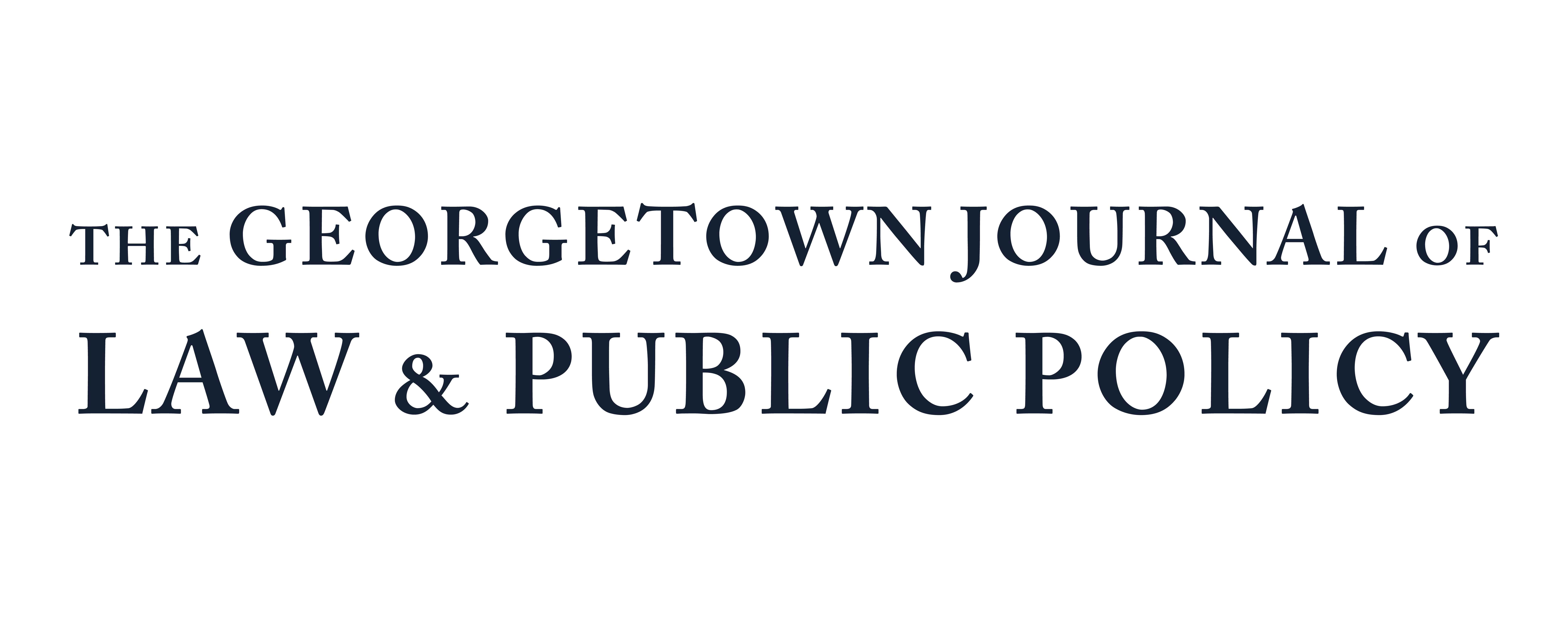Letter from the Editor
Dear Reader,
Welcome to Volume 21, Issue 2, the culmination of a partnership between the Georgetown Journal of Law & Public Policy and Pacific Legal Foundation. In February, the journal and PLF hosted a symposium in Washington, D.C., exploring the benefits and feasibility of democratic accountability in the administrative state. Our decision to focus on democratic accountability reflects a more popular approach to the issues of Congressional delegation and agency discretion, one that places the regulated people back in charge of the regulators.
In addition to Pacific Legal Foundation and the authors, the Journal thanks Judges Chad Readler, Zachary Somers, Paul Matey, and Trevor McFadden for moderating panel discussions, and Kannon Shanmugam for his keynote presentation.
The papers that follow appear in the order their authors presented them in February. Thomas Berry and Lucas Vebber opened the symposium by focusing on the relevance of the “Officers of the United States” title. Next, Professors Joshua Galperin and Chris Walker, who co-authored his paper with Shoba Sivaprasad Wadhia, addressed the feasibility of administrative-state direct accountability. Dean Ronald Cass and Michael Poon presented following lunch on the limits of remedies. Finally, Professor Richard Pierce and Alison Somin discussed policy solutions to accountability.
In addition to our symposium papers, the Journal is proud to publish three articles and four student notes. First and foremost is a deep analysis by Professor Jonathan Turley of the role rage rhetoric has played in American political discourse. Evaluating this history against the view that rage rhetoric should be treated as unprotected speech, Professor Turley concludes that regulating it is more dangerous than the speech itself. Paul Larkin and Professor John Hasnas follow Professor Turley with articles on, respectively, the recent Supreme Court case Ruan v. United States and a common-law approach to the First Amendment.
Finally, the Journal is proud to publish student notes by Journal members James Bernstein, Jennifer Simon, and Rachel Wolff. Each note tackles unique approaches to major issues: From Bernstein, a defense of marijuana use from the lowly Third Amendment; from Simon, an argument that Dobbs is anything but originalism; and from Wolff, a nondelegation approach using the NEA and the IEEPA. Additionally, New York University School of Law Journal of Law and Liberty member Ingrid Jernudd, whose note was selected through the Tri-Journal Notes Exchange, writes about antitrust and federalism.
Philip H. DeVoe
Editor-in-Chief, Volume 21
Georgetown Journal of Law & Public Policy

